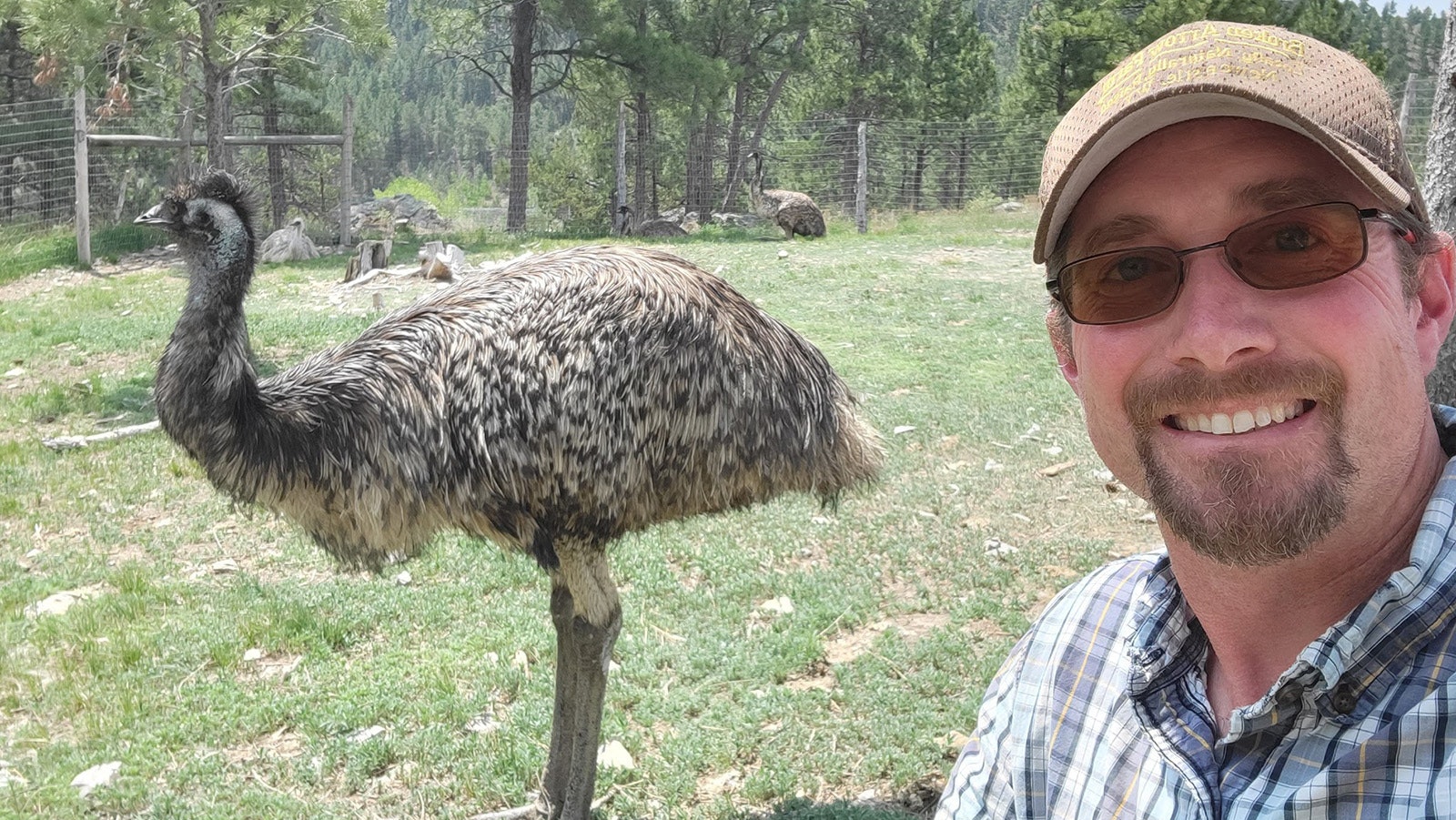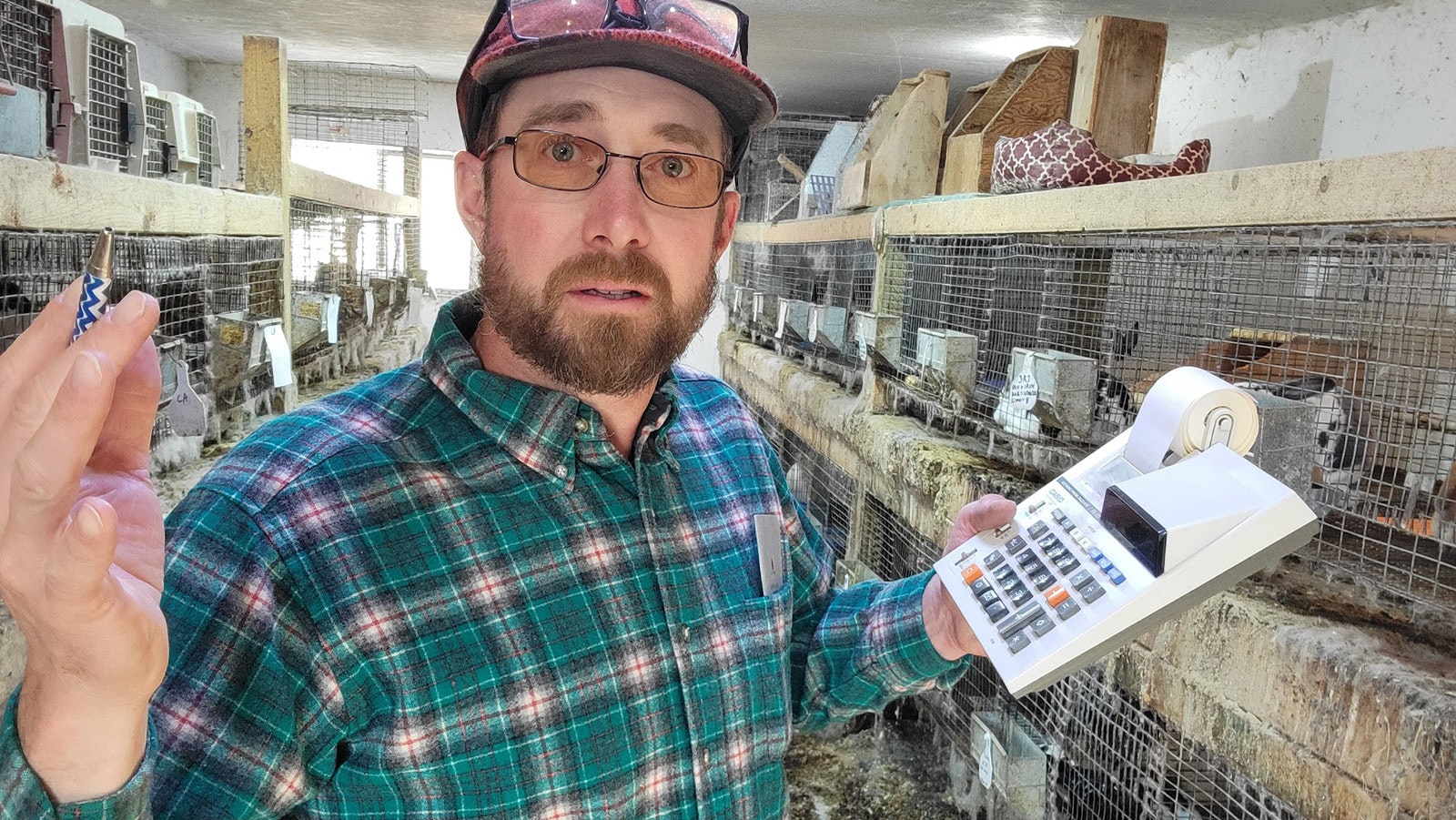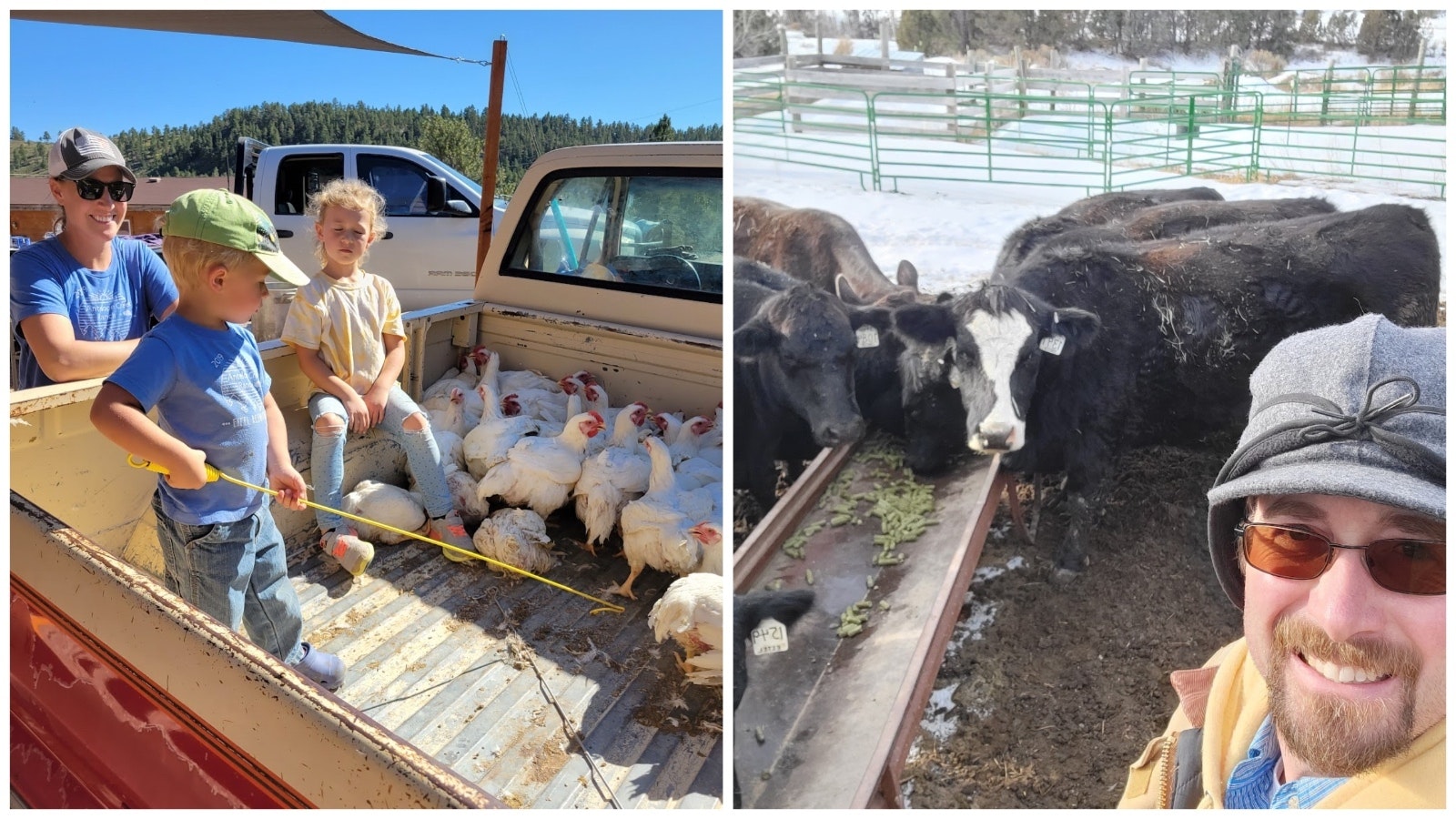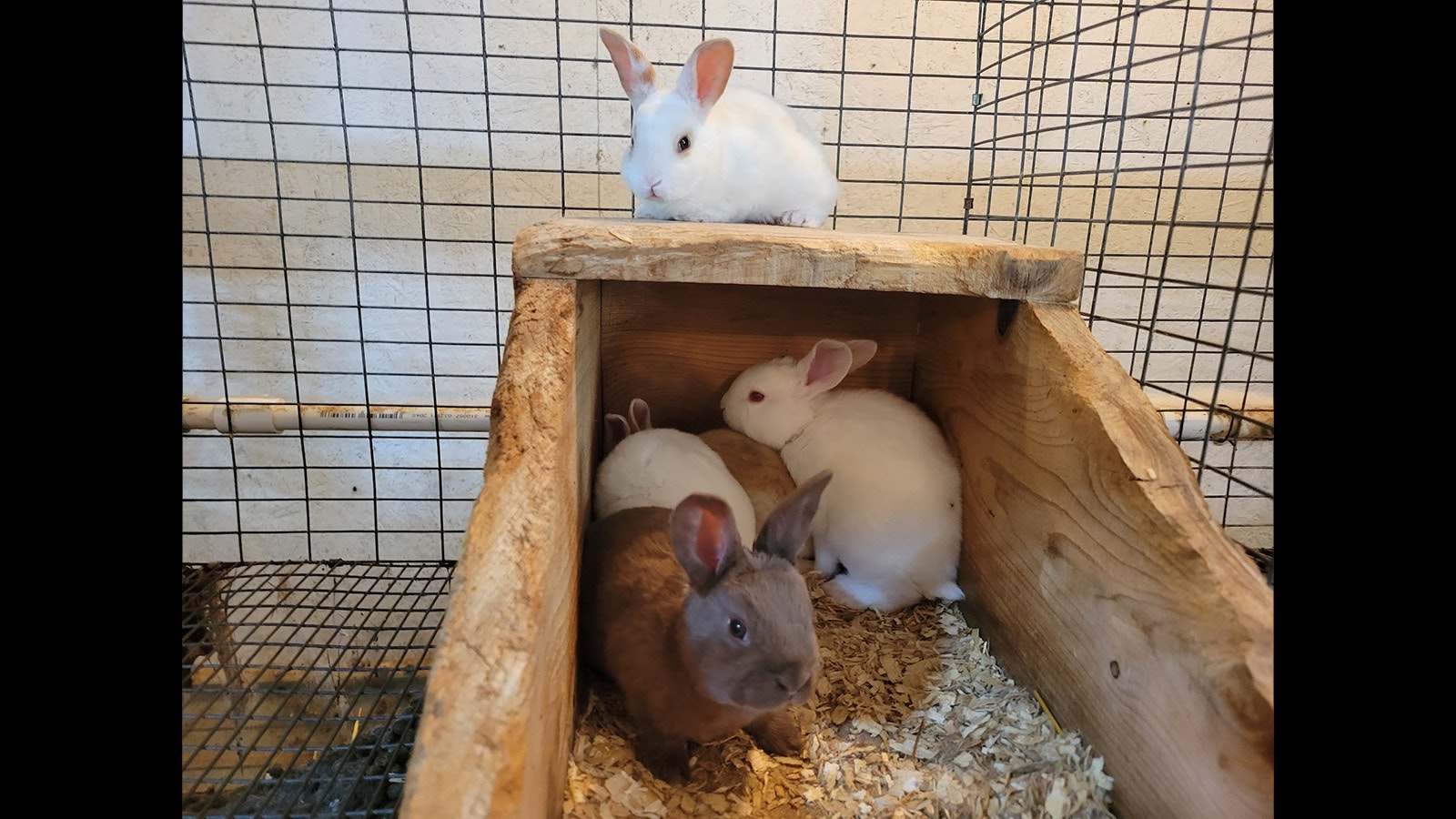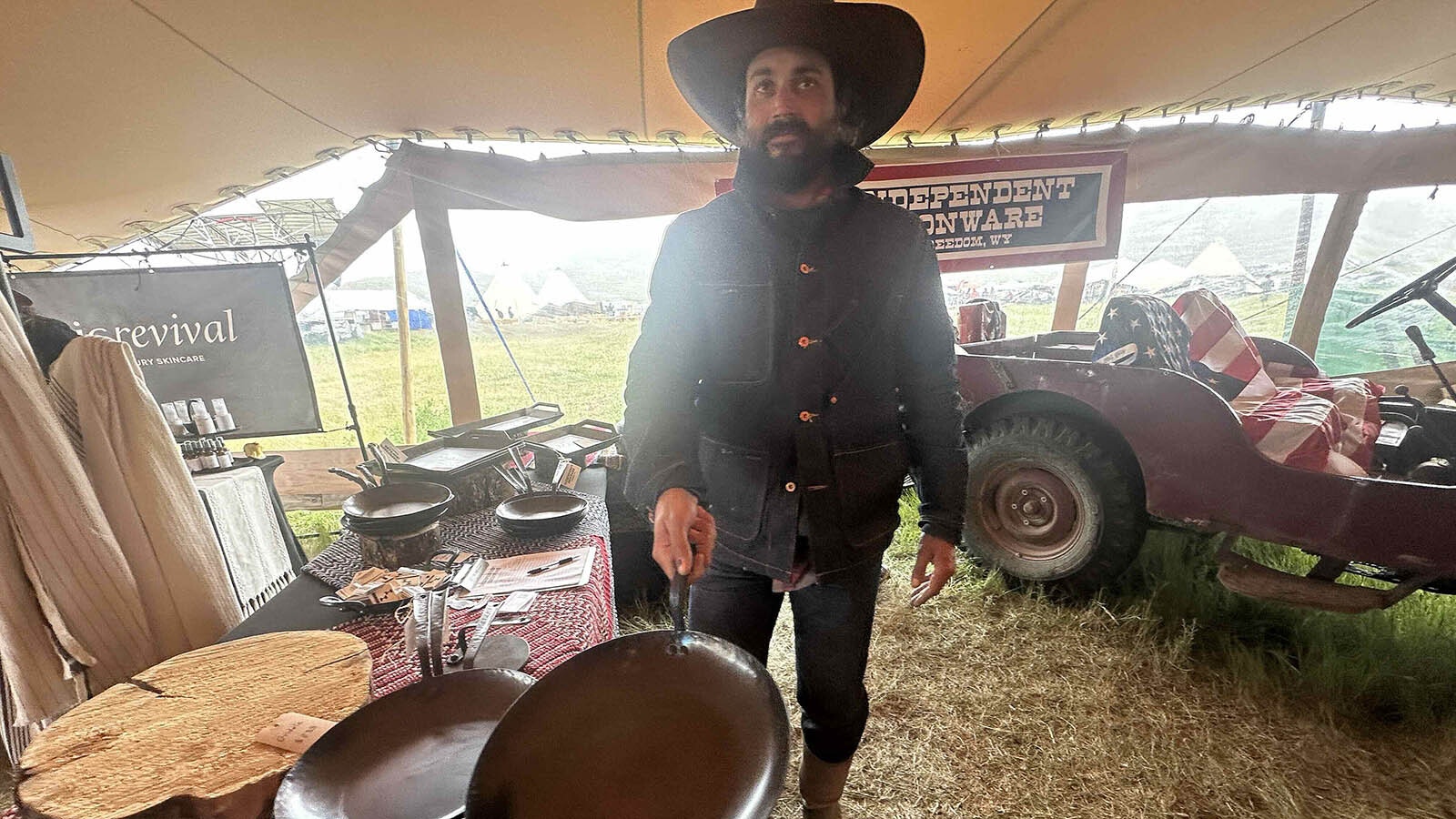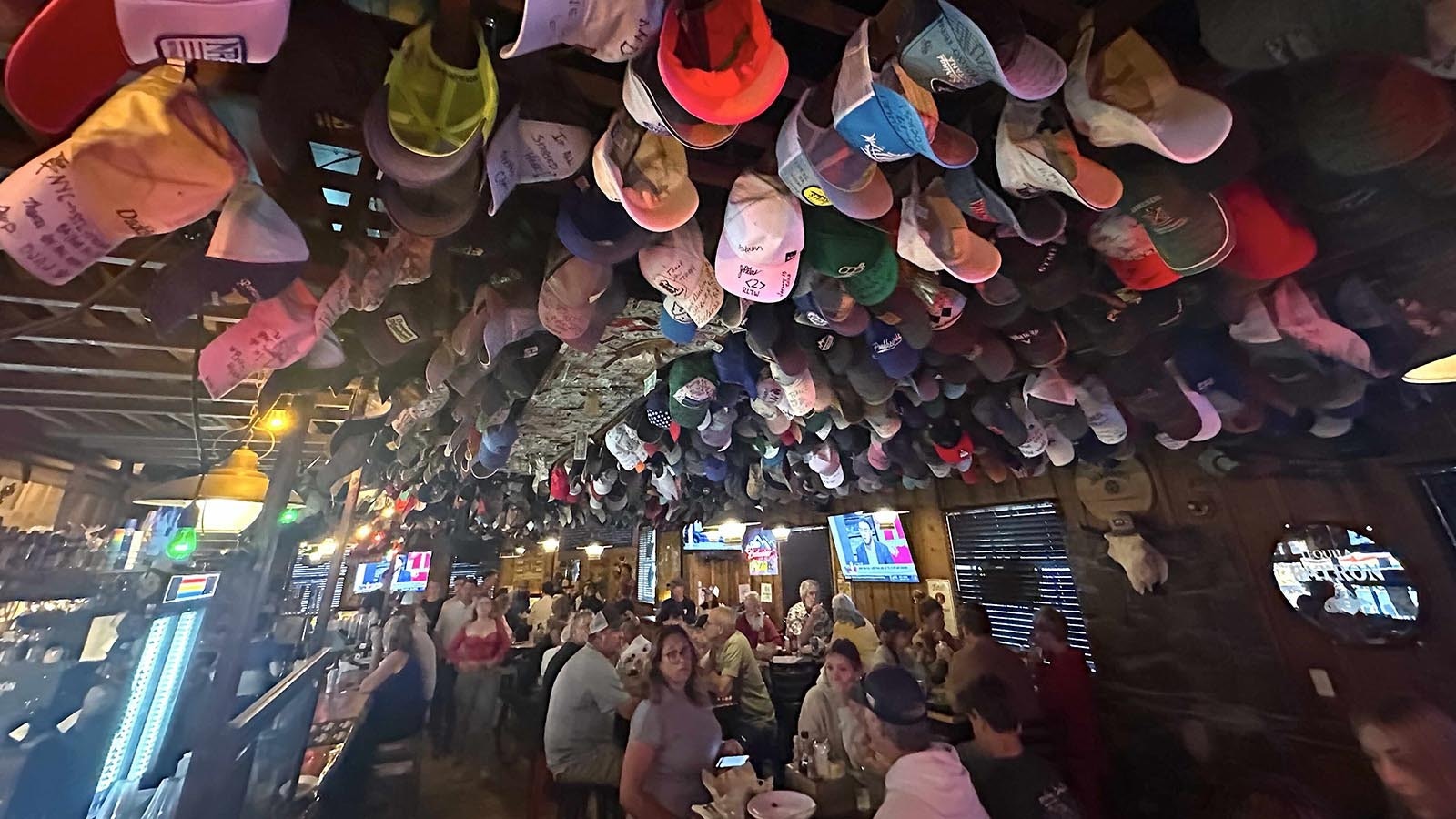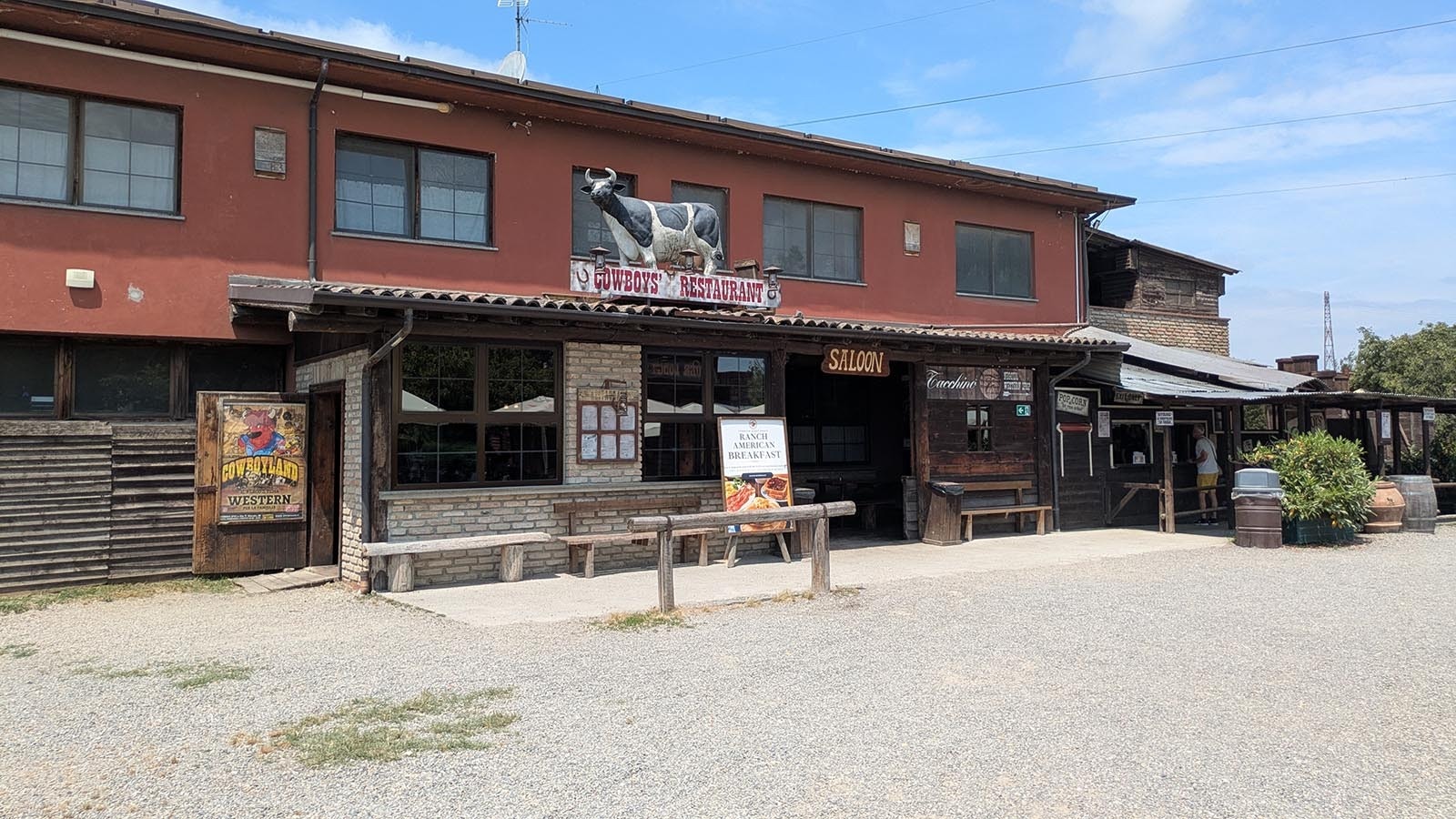Much of the knowledge, wisdom and homespun skill passed down through generations of American farm families is being lost to time and giant agriculture conglomerates.
How to butcher a whole hog or protect a flock of chickens from predators used to be essential skills. Today, those abilities are like burned-out birthday candles in a world driven by clicks and likes.
The U.S. economy has evolved to a point where less than 2% of the U.S. population are farmers and many Americans have lost touch where their food comes from.
Paul Eitel, owner of Broken Arrow Farm near Newcastle in northeast Wyoming, is one farmer who can’t abide this trend.
Eitel is a red-bearded Nebraska native with a friendly smile. He’s a lifelong farmer with a wide range of other skills, including marketing, video production and editing.
Eitel regularly shares his knowledge, producing numerous instructional videos. His how-to videos are mostly meat and potatoes. He doesn’t get bogged down in unimportant details. He started producing videos and posting them on YouTube about a year ago. He has more than 1,700 subscribers so far.
“I developed a passion for agriculture while I was growing up,” he said. “I enjoy this lifestyle, and after college I wanted to own my own property and have a small farm.”
Broken Arrow Farm is a 90-acre diversified operation that produces rabbits, turkeys, chickens, eggs, hogs, cattle, emus and vegetables.
He has worked tirelessly to develop markets for the meat, eggs and vegetables he grows.
Want to know how to cure ear mites in rabbits? What do emus eat? Is this rabbit pregnant? How to set up a chick brooder? How to set up a meat chicken pasture operation?
For answers to all those questions and more, people only need to check out Broken Arrow Farm on YouTube.
In addition to the agriculture information, he explains how to make it all profitable. Because, after all, if it can’t turn a profit, it’s just a hobby.
His videos stress the importance of a business plan and explain how he separates the individual enterprises that fall under Broken Arrow Farm. Carefully tracking his cost of production for each part of the business helps Eitel make sound business decisions.
How It Started
Eitel grew up on a ranch in northwest Nebraska where he learned about raising livestock. He moved to Newcastle in 2014 and accepted a job as district conservationist for the Natural Resources Conservation Service.
He rented some local farmland and despite advice that it probably wouldn’t work in northeast Wyoming, he started a pastured poultry operation.
Over time, he developed a market for his chickens and in 2016 bought 90 acres and started Broken Arrow Farm.
Raising meat chickens in portable pens is a system popularized by Virginia farmer and writer Joel Salatin. The pens are wire cages without bottoms. The chickens graze and catch bugs, but are also supplemented with commercial feed. The pens are drug through the pasture with a small tractor or by hand and are moved about the same distance as their length each day. This assures the birds are on fresh pasture every day and their manure is spread evenly.
Eitel’s pastured chicken operation grew quickly and he soon had 20 cages full of birds. He grows out 500 to 700 birds each summer. When moving 20 cages twice each day got to be too much work, he switched to electric poultry netting.
The netting serves as a temporary fence. It does a good job of protecting chickens from ground-dwelling predators but leaves them vulnerable to raptors, he said.
He processes the chickens he raises with help from family and friends. They use kill cones, an electric scalder and plucking machine. He has a walk-in freezer to store meat and sells it all from the farm.
Rabbits – Lots Of Em
One thing rabbits are good at is making more rabbits. They can breed every six weeks and up to seven times a year. Gestation takes about four weeks and an average litter is 10.
Any way you slice it, it’s a lot of meat production in a small space over a short period of time. Eitel uses a small barn or rabbitry that is not heated to house his rabbits.
What to do with several hundred pounds of rabbit meat is another question altogether. It’s not a common protein choice for American families, the Eitels included, he said.
Marketing is one of Eitel’s strong suits. Through persistence, he landed what many would consider a blue-chip deal for his rabbit meat. About 75 miles east of Broken Arrow Ranch is Reptile Gardens in Rapid City, South Dakota. The zoo houses one of the world’s largest collections of reptiles.
“It took some trying and persistence to be able to produce for them,” Eitel said. “I basically called them every few months. Their rabbit vendor was shipping them across the country and that became cost prohibitive.”
Eitel said the alligators, crocodiles, Komodo dragons and snakes at Reptile Gardens are fond of rabbit meat and he sells 500 to 700 rabbits to the zoo each year. Every week he processes up to 40 rabbits and hauls them to South Dakota. He can process a rabbit in under four minutes. He leaves the heart, lungs and liver in place but removes the stomach and intestines. The largest rabbits fetch $28 each.
What’s There To Like About An Emu?
The Broken Arrow Farm’s emu business hasn’t taken flight yet.
That’s a farmer/dad joke that Eitel tells. Emus are flightless birds after all, but the takeaway is that if you’re going to sell emus, you’d better be good at marketing.
Emus are big, brown, gangly birds. Their brains are about the size of a large marble and they bob and weave when they walk like they’re not quite sure where they’re going.
He started out buying three emus, but they were all males. He said when buying emus it takes a blood test to determine sex. Determined not to make the same mistake twice, he bought three more birds that were blood-tested females.
Now about three years later, they are starting to lay big blue-green colored eggs about the size of softballs. The eggs are collected and stored until there are enough to fill an incubator. He expects to hatch his first chicks in the coming weeks.
After that he can begin to find markets for emu breeding stock, meat, oil and leather, he said.
Some emus can be aggressive and dangerous to work around. They have a large three-toed foot, and the forward-facing toe is a weapon that they swat with. Eitel said his are all gentle so far, but he is the only person who enters their pen.
Emus are native to Australia. They have a thick coat of long, thin feathers. They seem to do fine in northeast Wyoming if they have a three-sided enclosure or a wind break, he said.
“Agriculture is our way of life and a sustainable farm is our goal,” Eitel said. “I want to show people that it is possible to make money on a small farm with several small entities producing income.”
John Thompson can be reached at: John@CowboyStateDaily.com

